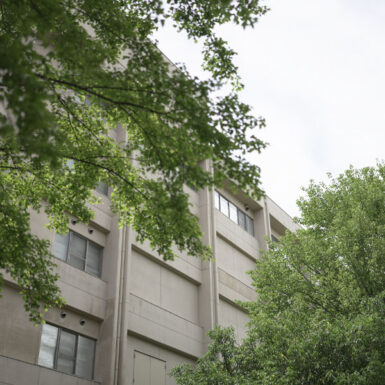
| 日時 | 令和7年5月9日(金)17:30〜 |
| 場所 | 動物生命科学研究センター5階 セミナー室 |
| 演題 | 「Molecular and cellular mechanisms underlying embryo colonization by pluripotent stem cells in primates」 |
| 講師 | Irene Aksoy 先生 ( Stem-Cell and Brain Research Institute, INSERM ) |
〈 演題要旨 〉
Generating interspecies chimeras with primate pluripotent stem cells (PSCs) remains a major challenge. Unlike mouse embryonic stem cells (ESCs), which efficiently colonize host embryos, human and non-human primate (NHP) naïve PSCs exhibit poor integration, regardless of the host species. After dissociation, these cells slow DNA replication, stall in G1, and differentiate prematurely, suggesting an intrinsic inability to remain mitotically active during colonization. The pre-implantation embryo may also impose selective pressures that eliminate foreign cells via cell competition. To investigate this, we assessed naïve PSCs from humans, chimpanzees, rhesus monkeys, and marmosets in both in vitro competition assays and in vivo embryo injections. Chimpanzee PSCs consistently outcompeted human, rhesus, and marmoset PSCs in vitro and exhibited superior colonization efficiency in rabbit, pig, bovine, and cynomolgus monkey embryos. Single-cell transcriptomics revealed adaptive transcriptional changes in chimpanzee PSCs during colonization. Mechanistically, ERK and AKT signaling pathways enhance primate PSC survival in chimeric environments. ERK inhibits BIM to prevent apoptosis, while AKT reduces BAX activity. Leveraging these insights, we developed a small-molecule cocktail that improves human iPSC colonization. These findings establish a link between cell competition and chimera formation, providing a framework for optimizing primate PSC-embryo integration and producing intra- and inter-species chimeras.
Reference:
Aksoy I et al. Stem Cell Rep. 2021 16:56-74
